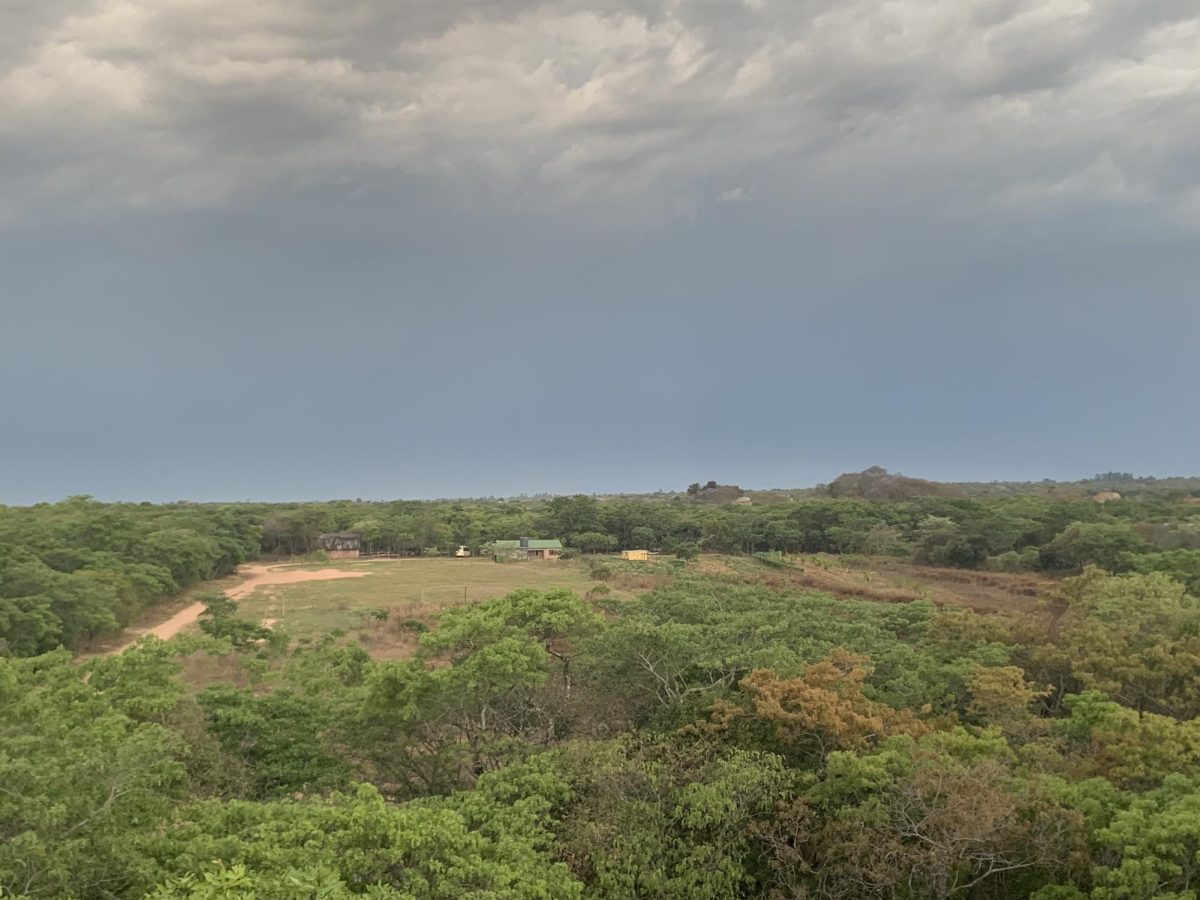At 4 p.m. on Nov. 20, the 2020: A Year Without War group hosted a faculty lecture in the Physical Sciences Building Room 101 regarding mass shootings in the United States. The talk expanded to discuss gun control as a whole.
The panel included Political Science Teacher Kay Zare, Anthropology Teacher Mark Sanders, and Professor Emeritus in Philosophy Joe White.
The hosts of the event began by introducing the definition of a mass shooting which is “an incident involving firearm-related violence committed by one assailant that injures or kills three or more innocent people.” To show the growth in these type of attacks they displayed a graph illustrating how there were no mass shootings in 1980, this number jumping to 606 fatalities in 2016. This displayed how the United States is an extreme outlier compared to other countries. The U.S. has a disproportionate amount of guns per person and a disproportionate amount of gun related deaths, pointing to a correlation.
The faculty panel began with Kay Zare. He started by touching on the stats of gun related deaths. Stating that of the nearly 30,000 gun related deaths in the U.S. per year, two thirds are from suicide. Stating that these gun related death are preventable. Access to guns is allowing for people to commit suicide more easily. The small percent of gun related deaths that are attributed to mass shootings that scares people the most is that they are random, they are essential terrorist attacks.
Zare mentioned that after the Sandy Hook shooting 87 to 92 percent of people polled said they “wanted an instant federal background check policy.” He also pointed to the fact that arguments that the public worries about after one of these events, for example “bump stocks” is quickly forgotten from the public’s memory. According to Zare the National Rifle Association’s tactic is time, if they put enough time into these discussions, the public will simply forget. People that feel strongly about these subjects vote about them all the time, the important part is for the public to make an effort to be involved in these issues and vote.
The next speaker was professor Mark Sanders. Sanders began by talking about how we compare to other countries, specifically Japan. Last year Japan’s police force shot six bullets in total. In Japan, you can own guns but the regulations and social norms behind owning a gun are very different. For example if you own a gun in Japan the police enter your home once a year and check the status of it and make sure you are storing it in one safe and the ammunition in another.
This would not be accepting in the United States. This is a violation of our rights, but how did the United States become such an “exceptional case” in regards to these issues? Sanders, being a history professor pointed to our history of gun ownership. The original use of The Second Amendment “to keep and bear arms” was to protect us from another British attack like the war of 1812. During this time militias were used as a military forces that was raised from the civil population to help in an emergency. This is why people needed guns in their homes. Normal civil populations would not be able to assist the military this day in age in a comparable way. That is why the word “keep” in the phrase “to keep and bear arms” is a significant part of the wording.
The last speaker of the faculty lecture was philosophy professor emeritus Joe White. Joe began by stating how long it took for Sanders to get through the intricacies of The Second Amendment.
“Do you think something as complicated as this document can be resolved with a tweet?” Sanders asked the audience.
He also turned to the culture of our generation saying that we are addicted to spectacle, we need “big things” to hold our attention. That is why mass shootings are so widely talked about.
White then turned to the nature of human beings. We tend to be tribal and have hierarchies and we think the rules in our society are the way they ought to be.
We are at a pivotal time where we may need to reconsider our stances on gun control, stances that we have held strongly for centuries.
We are maturing in a time when politicians do not consider themselves to be wrong, not considering the other side, when this is how democracy works.
“We know that democracy is created because smart, involved, and dedicated people profoundly disagree,” White said. “Vote! You can’t just disenfranchise these people, that’s heading toward fascism.”
Then he turned to the philosophical side of the issue, mass shootings give us moral clarity. There is a sense of “What ought I to do” that transcends cultures. White tied this personal sense of morality into our political system. Our laws are imbued with morality. The less you understand about your moral code, the less articulate your laws are.
White’s one recommendation if you want to do something on the issue, is to first look inward and decide what you think “what ought to be done.”
“There is something that we all share about ought and should, this is dead wrong,” White said, closing the lecture.







